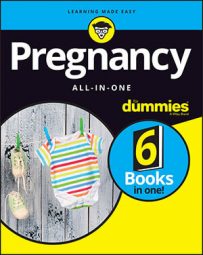The result is that gastric acids, liquids, and food from the stomach travel back up your esophagus, leaving you uncomfortable. Heartburn typically worsens as your belly grows and puts more pressure on your stomach, causing the sphincter muscle to allow acid back into the esophagus.
You can lessen the symptoms of heartburn by trying the following tips:
-
Stop eating two to three hours before lying down for bedtime or a nap. The less you have in your stomach, the less likely you are to experience acid reflux.
-
Sleep propped up to avoid lying flat. When you elevate your upper body, gravity helps keep your stomach acids down. (If you’re past your first trimester, you shouldn’t lie flat, anyway; lying flat can cut off circulation to your baby and your legs. Lie on your left side for optimal circulation.)
-
Practice good posture when sitting. When you slouch, you put more pressure on your esophagus, which can lead to heartburn.
-
Avoid big meals. Eat small portions so that you don’t overfill the stomach and cause extra food to come back up the esophagus.
-
Sip liquids with meals instead of drinking large amounts. Because you want to avoid having large amounts in your stomach at one time, drink small amounts at meals and stay hydrated by spreading your liquids out between meals.
-
Avoid greasy or fatty foods. High-fat foods, specifically fried foods, tend to trigger heartburn because they don’t stimulate digestion but do take longer to digest (they just sit in your stomach).
-
Skip spicy and acidic foods. Acidic foods, like tomatoes, citrus, and peppers, can be problematic for many women. Onions and garlic are also on some women’s problem-foods list.
-
Avoid caffeinated and carbonated beverages. These drinks have been known to cause acid reflux. Sorry to say, but chocolate can also irritate the esophagus, so you may want to avoid it, too.
-
Take an antacid when you’re uncomfortable. Talk to your doctor about which one to choose or about a safe prescription medication if over-the-counter antacids don’t work for you.

